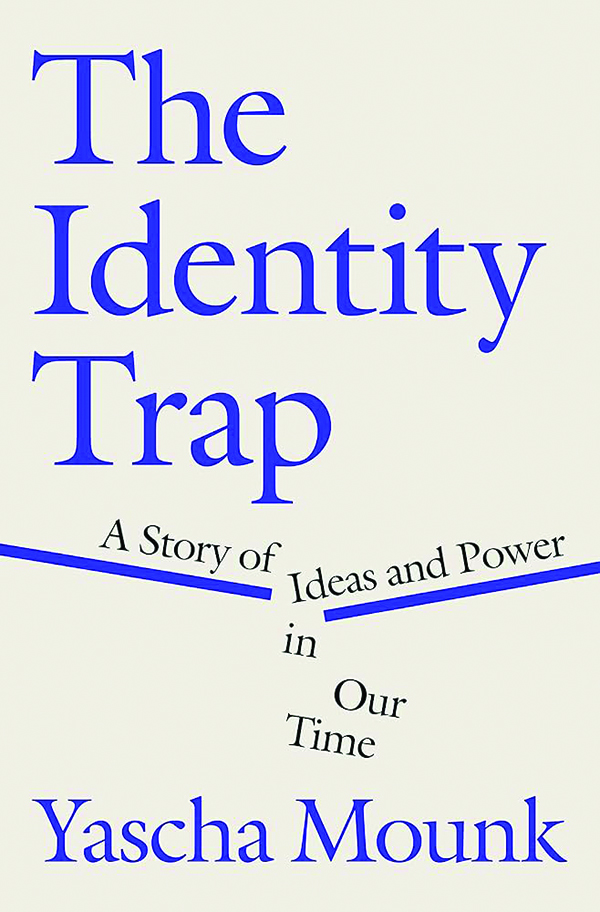
Yascha Mounk patiently explains that what’s wrong with identity politics is everything
Samuel Negus
Recently, activist students who conceive of themselves as fighting for the rights of transgender people disrupted a scheduled event of Stanford University Law School’s Federalist Society chapter, preventing a federal judge from speaking. When he appealed to Associate Dean of Diversity, Equity, and Inclusion Tirien Steinbach to restore order, she proceeded instead to read six minutes worth of her own pre-written comments, hectoring the jurist for his “opinions from the bench,” which she characterized as “literally denying people’s humanity.” Explaining her behavior over protests from the invited speaker, Steinbach admonished: “if it was just words that would be one thing, but you have authority … [to] impact the lives of millions.” She concluded by reminding students that, though they were free to stay and listen, they were also free to walk out in protest — implicitly, they should do so.

This episode perfectly dramatized the impulses, ideas, vocabulary, and consequences of what political scientist Yascha Mounk calls “the identity synthesis.” Mounk’s latest book, The Identity Trap, begins with an intellectual genealogy of the “seven fundamental propositions” uniting identity synthesis scholarship. These include a postmodernist “skepticism about objective truth”; postcolonialist “discourse analysis” that (somewhat contradictorily) rejects essentialist racial labels as oppressive fabrications while making “strategic” use of them to politically organize groups; race-critical rejections of Western societies as structurally oppressive with calls for race-conscious policy prescriptions; and “intersectional” denial that “members of different identity groups [can ever] understand each other.” The precision, clarity, and brevity of this survey suggest the deep fluency with relevant academic literature we should expect from an associate professor at Johns Hopkins. But The Identity Trap is not a scholarly work as such. The chief virtue of this timely book is the accessible style characteristic of a popular writer regularly published by outlets such as the Atlantic and Slate.
THE PARANOID STYLE IN LIBERAL CRITICISM
Mounk’s commentary and career, which began in Britain as director of the Tony Blair Institute for Global Change, identify him as a convinced liberal of the center-left. The other great virtue of his latest book, then, is its intended audience. In his introduction, Mounk defends the need for such a book. Implicitly to establish his credentials, he points to his extensive writing on the dangers of right-wing populism. He asks rhetorically why “anyone should care about the spread of a well-meaning ideology … that has as its stated goal the fight against injustices that are all too real” — a definition of “woke-ism” for readers of the New York Times, not National Review. Mounk calls the identity synthesis “oddly unexplored territory.” Conservatives might protest that they have been charting these regions for decades, but no matter. No avowed conservative is likely to reach, much less convince, Mounk’s readers. He may.
In part two, Mounk explains the rapid rise of the identity synthesis in public discourse since the mid-2010s. This process began with the “meme-ification” of hitherto esoteric academic language via the social media platform Tumblr. This popularizing process catastrophically oversimplified and overextended complex scholarly ideas. For example, “in social media discourse” the nuances of “standpoint epistemology and intersectionality … quickly became an article of faith that members of dominant groups, like whites or heterosexuals, could not in any meaningful way understand the experiences of [oppressed] groups.” Such logic spread from Tumblr to the commentariat via Twitter. It likewise spread from elite college campuses, where it was enacted into policy by a growing army of administrators, to the influential corporations that employ their graduates.
In part three, Mounk expounds his objections to the identity synthesis. Broadly, these are of two kinds: philosophical and practical. Most fundamentally, the popularized application of standpoint epistemology is highly tenuous. Firstly, the identity synthesis, to put it a certain way, denies the realest diversity by fatally understating individual variety. Two people belonging to the same oppressed class may face similar injustices yet experience, understand, respond to, and be shaped by them differently. Secondly, in its focus on such voguish vagaries as “lived experience” and the theory behind terminology of that kind, it denies that which is universal. This application of standpoint epistemology denies the transferability of “propositional knowledge.” Mounk asks whether “the most important insights” of experience, especially those “relevant to social and political debates,” can be shared. As a committed liberal, he believes so.
As to practical objections, the identity synthesis is operationally flawed and therefore dangerous. In making race-conscious policy, who is to sort the variegated mass of human beings into supposedly determinative groups? Consider here the recent work of another dissenting center-left liberal, Thomas Chatterton Williams’s Self-Portrait in Black and White. Where does an American male of mixed race, whose father grew up in the Jim Crow South, who now lives in France with his very light-skinned children and a Swedish wife fit into the identity synthesis? To Mounk, such exceptions are the rule. Individuals are the foundational unit of a liberal society, and liberal societies are in every important way superior to illiberal ones. Free people’s choices defy deterministic predictions drawn from caricatures of their aggregated experience. They can and do form meaningful bonds with others, often transcending identity group labels.
This is liberalism’s confession of faith in human nature. But there is humanity’s dark side, too. Mounk warns that illiberal societies, where law is binding but the conscience is not free, invite corruption and revolt by “raising the stakes of political competition.” Tocqueville claimed in the 1830s that American political parties did not become subversive because, if defeated at one election, they held reasonable hope of winning the next by open and peaceful persuasion. But what will result from the combination of electoral democracy and majoritarian sovereignty in a society divided into rigid and opposing identity groups without hope of mutual understanding? The most casual student of human nature must know.
Ultimately, though, The Identity Trap is a hopeful work. Part four lists Mounk’s practical advice for convinced centrists to “claim the moral high ground” in defending the ideals of liberal democracy. He urges readers not to “vilify those who disagree,” to “remember that today’s adversaries can become tomorrow’s allies,” to “appeal to the reasonable majority,” and to “make common cause with other opponents of the identity synthesis” despite other areas of disagreement. He concludes with several illustrative anecdotes of students who fell into and later escaped the identity synthesis trap. One, a Chicago-born Muslim and second-generation Indian American, initially felt that the concepts of institutionalized racism and structural oppression he encountered at the University of Illinois “basically described my entire life.” Though they seemed helpful and liberating, the more he imbibed these ideas the more “censorious” he became. Eventually, after deeply offending a beloved professor in an attempt to score some easy intellectual points, he realized that this was “not who I wanted to be” and vowed not to raise his future children with “the victim mind-set I succumbed to as a college student.”
CLICK HERE TO READ MORE FROM THE WASHINGTON EXAMINER
Samuel Negus is an academic administrator at Hillsdale College.
